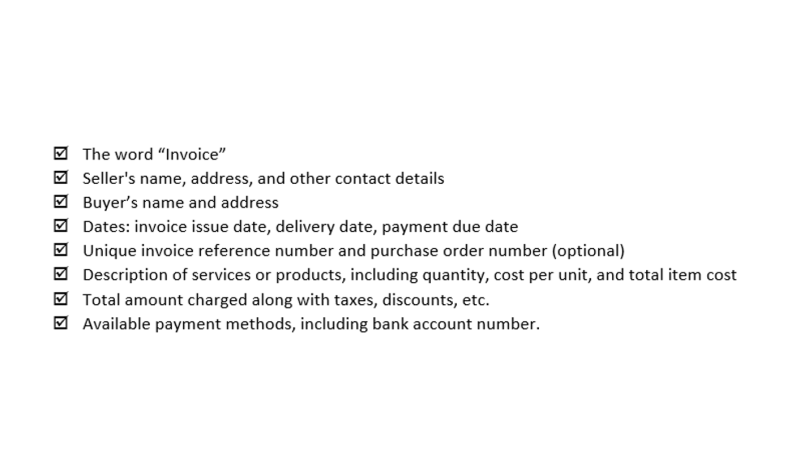Law Firm Accounting Guide: 11 Steps to Boost Efficiency
- admin
- November 23, 2022
- Bookkeeping
- 0 Comments

Moreover, it reduces the likelihood of human error, which can be detrimental when it comes to maintaining accurate records. These advanced tools offer a suite of integrated features that allow lawyers to effortlessly record billable hours while simultaneously managing case-related expenses in real-time. By automating the time-tracking process, attorneys can ensure that every minute spent on a case is meticulously accounted for, reducing the risk of lost billable hours and ultimately improving the firm’s revenue potential. This partnership alleviates the burden of managing increasingly complex tax issues, allowing legal practitioners to focus on their core competencies—serving their clients and advancing their legal expertise. Furthermore, as tax laws continue to evolve, having a tax professional on board ensures that law firms remain informed and compliant, reducing the risk of costly penalties or missed opportunities for deductions. Law firms may overlook valuable deductions related to client meals, travel expenses, and office supplies.
Accountant
- Documenting every transaction meticulously not only supports transparency but also acts as a safeguard against potential disputes, audits, or malpractice claims.
- By staying updated with the latest technology and accounting practices relevant to legal services, we ensure that you can seamlessly continue managing the business aspects of your law firm.
- Many lawyers are required to set up Interest on Lawyer Trust (IOLTA) accounts depending on the state they operate in.
- Safeguarding the sensitive information of the client is substantial, and a law firm accountant should have robust security measures in place to protect the data.
- Effective expense tracking and budgeting help law firms manage their resources efficiently, ensuring that they remain financially viable and can capitalize on growth opportunities.
- In addition, operational aspects of law firm accounting include ethical considerations, legal compliance, and addressing frequently asked questions, providing a solid foundation for successful law firm accounting practices.
- This consistency not only fosters trust with clients and partners but also aids in regulatory compliance; it helps firms avoid potential legal repercussions that can arise from misreporting or financial discrepancies.
Trust accounting causes a lot of problems for lawyers, so, in general, you’re going to need to follow a couple of steps to ensure compliance with IOLTA rules. Bookkeeping is an ongoing task that is performed daily, weekly, or monthly (if you’re adventurous). Daily bookkeeping gives you better information about the financial state of your law firm, while monthly bookkeeping will keep you guessing. Now that you understand that bookkeeping happens first, I suggest you figure out the best way to handle bookkeeping before we move on to legal accounting. Avoid hunting down receipts, manually law firm accounting services logging transactions, and reconciling accounts across multiple platforms or papers with cloud-based accounting software built for attorneys.
Common legal accounting and bookkeeping mistakes

By investing in technology that enhances their bookkeeping capabilities, law firms can ensure greater accuracy, efficiency, and compliance in their financial practices. Additionally, using software that integrates with other management systems can provide a unified view of operations, further aiding in strategic planning. Finally, law firms should consider ongoing training for their accounting staff to stay updated on changes to trust accounting regulations and best practices. This commitment to continuous improvement in financial management will reinforce the firm’s reputation for reliability and high ethical standards.
Training And Support For Bookkeeping Software In Law Firms
- Watch a replay of our webinar with Claude E. Ducloux to learn about the basics of trust accounting.
- These practices make it easier for clients to understand what they are paying and what they are getting in return.
- By meticulously recording all financial transactions—such as client billings, expense claims, and payment receipts—bookkeepers ensure that data flows seamlessly into the financial system.
- We ensure funds are accurately and promptly disbursed, while maintaining accurate transaction records that comply with regulatory requirements.
With the increasing emphasis on technological advancements in legal accounting, it’s essential for law firms to adapt and integrate efficient bookkeeping practices. Mismanagement of trust accounts in law firms can result in severe consequences, including ethical violations and legal issues. It is crucial for law firms to adhere to meticulous record-keeping practices and keep separate accounts as required by state bar association rules.
Free Course: Understanding Financial Statements
- This alignment not only aids internal stakeholders in understanding the financial landscape of the firm but also prepares the firm for external audits and regulatory scrutiny, which can be critical in the legal profession.
- Setting a fixed schedule, such as monthly or quarterly reviews, can help law firms stay on top of their financial records and ensure accuracy.
- It’s worth noting that embracing technology for marketing purposes can significantly enhance outreach efforts and client engagement.
- Furthermore, many jurisdictions impose specific requirements regarding the type of trust accounts that may be used.
- This meticulous record-keeping helps law firms present a transparent financial picture to clients and regulatory bodies.
Bookkeeping is the process of tracking the cash coming into and out of your business, and it’s the foundation for proper legal accounting. Typical bookkeeping tasks are (1) recording financial transactions, (2) creating and sending invoices, and (3) running payroll. Trust accounting is the process of tracking and managing client funds that are held in trust.
Strategies for Tax Planning

These resources can be tailored to cater to different learning styles, ensuring that every staff member finds a method that resonates with them. When it comes to our record-keeping, the handling of our Trust account was and continues to be most important. Monitor and manage Trust/IOLTA accounts and client trust liabilities to meet adjusting entries strict state bar regulations.

Why bookkeeping and accounting matter for law firms
Because InvoiceSherpa integrates with Clio, you can bring contacts and invoices from Clio directly into InvoiceSherpa. Automated bill reminders enable you to automatically send outstanding balances to your clients and bill recipients based on a schedule you can customize. Additionally, keep your financial records in check by syncing to a system for accounting for law firms like QuickBooks Online.
Not Reconciling Accounts Regularly
By prioritizing effective bookkeeping processes and leveraging advanced technology, firms can enhance their financial reporting https://www.bookstime.com/ accuracy, empower better decision-making, and foster a proactive approach to financial management. To enhance this process, law firms can consider conducting regular feedback sessions with clients. This practice can provide insight into client satisfaction regarding the retainer management process and reveal areas for improvement.